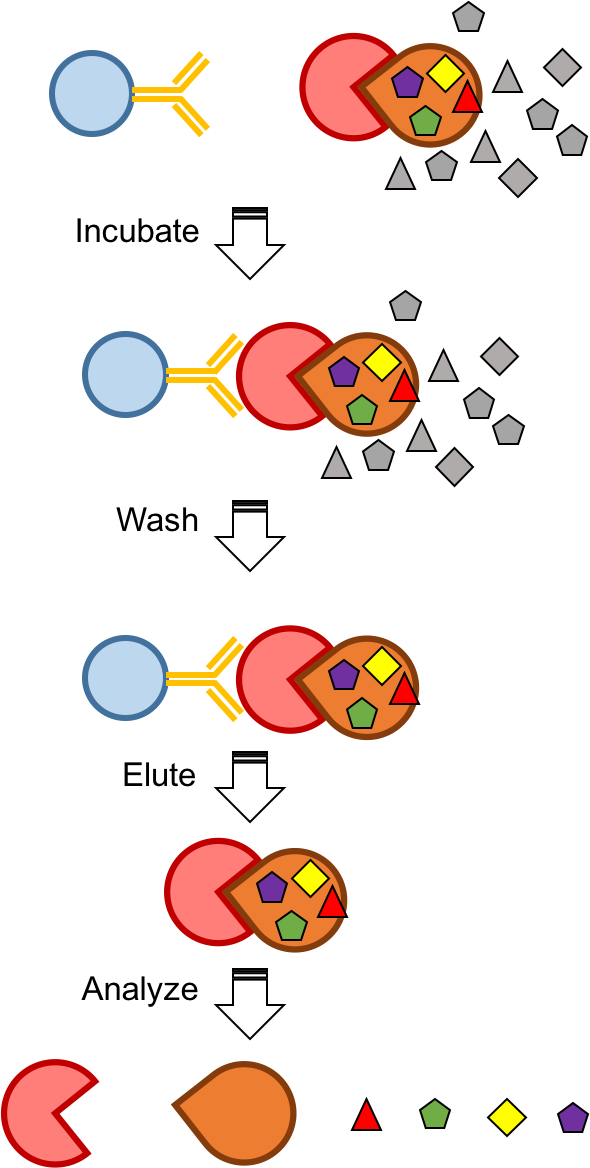The Co-IP assay is a powerful technique that is widely used for the discovery and detection of protein-protein interactions. The principle of this technology is to utilize the antigen-antibody interaction to pull-down putative interactive partners of the target protein. Specifically, the antibody of the target protein is immobilized in affinity resins, which are then exposed to a designed protein mixture, or a cellular extraction. Therefore, proteins or protein complexes that have strong interactions with the target protein will be co-precipitated; and the identities and amounts of these interactive proteins can be revealed by multiple analytical approaches.
The general procedures for a standard Co-IP assay are as follows (Figure 1)
 Figure 1. The workflow of a standard Co-IP assay.
Figure 1. The workflow of a standard Co-IP assay.
Comparing to other protein interaction methods, the Co-IP assay has the advantages of
Lifeasible, as a predominant plant biotechnology company, has many years of experience in the study of plant molecular biology, plant biochemistry and plant cell biology. We provide superior services for Co-IP assay within the plant system. Our optimized protocols for plant protein extraction, expression and purification ensure the acquisition of bait and prey proteins with high qualities. Moreover, we provide both traditional and advanced detection approaches for the characterization of potential interactive partners.
Noticeably, to save you time and money, we also offer featured one-stop service, which covers every step of your project, including
Lifeasible has established a one-stop service platform for plants. In addition to obtaining customized solutions for plant genetic engineering, customers can also conduct follow-up analysis and research on plants through our analysis platform. The analytical services we provide include but are not limited to the following:
STU-CRISPR System Improves Plant Genome Editing Efficiency
April 19, 2024
Application of Exosomes in Facial Beauty
April 12, 2024